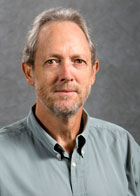
By Andrew Cohen
Fueled by a U.S. State Department grant, the Berkeley Center for Law and Business (BCLB) will play a major role in a detailed survey that identifies obstacles to business and technological innovation in Russia.
Partnering with the Higher School of Economics (HSE)—one of Russia’s largest national research universities—the center will survey Russian entrepreneurs, venture capital firms, academics, and others involved in innovation, research, and development. BCLB will help compile and analyze their perceptions in the hopes of advancing legislative, regulatory, and administrative solutions.
“Over the past several years there has been a push in Russia to drive investment in the country’s technology development infrastructure and increase access to the U.S. market,” said Ken Taymor, BCLB’s executive director. “Last winter, we held a conference on cross-border innovation and early-stage company work between Russia and the U.S. This builds on that effort.”
The survey is part of a State Department initiative to fund peer-to-peer collaborations across U.S. and Russian businesses, NGOs, and research centers. It will inform future articles, presentations, and webinars that address innovation-related concerns raised by the State Department, Russia’s Ministry of Economic Development, and the U.S.-Russia Bilateral Presidential Commission’s Innovation Working Group.
Russia fell 11 places this year in the Global Innovation Index, an annual report produced by Cornell University, the global business school INSEAD, and the World Intellectual Property Organization. The country ranks 62nd overall, 35th in Europe, and 19th among upper-middle-income nations. Some of the noted innovation barriers include the difficulty of securing credit, low levels of local competition, ecological instability, and a lack of financial incentives.
Cross-border alliance
Taymor hopes the survey project will lay a foundation for sustained collaboration regarding empirical work based on venture capital and innovation in Russia.
“The survey is aimed to help U.S.- and Russian-based companies, U.S entrepreneurs trying to conduct business in Russia, and Russian entrepreneurs trying to conduct business in the U.S. and other western nations,” he said. “It will also promote and encourage the continued joint efforts of American and Russian lawyers working together within an American Bar Association program to remove impediments to innovation and cross-border entrepreneurship.”
BCLB and HSE will work jointly to create the survey, determine its methodologies, identify the target participants, and analyze the results. HSE will also take the lead translating the questionnaire into Russian and administering it.
Taymor plans to involve other disciplines, including empirical research experts within Berkeley Law’s Jurisprudence and Social Policy Program and its Center for the Study of Law & Society. He is also reaching out to colleagues who have coordinated similar survey work in Silicon Valley.
“We’ll also have involvement from Berkeley Law students,” Taymor said. “They’ll help in organizing the data, as well as categorizing and analyzing the results. In addition, we’re planning a second phase to focus on U.S. legal obstacles, and students will be very involved in researching those issues.”